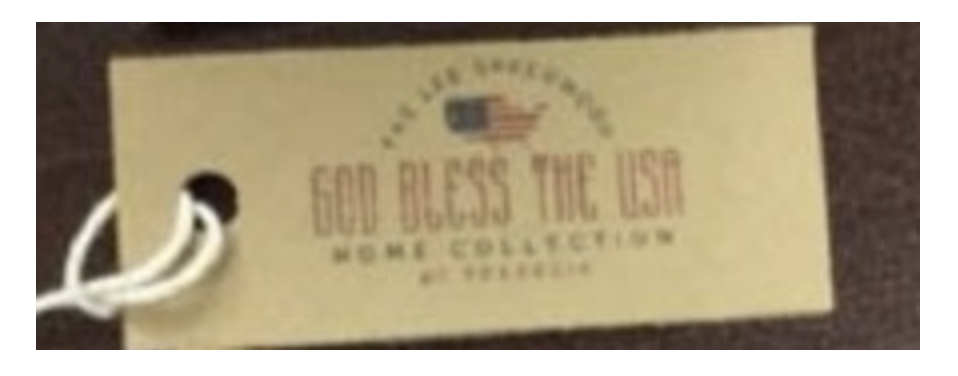I’m sure everyone has heard Lee Greenwood’s song “GOD BLESS THE USA” by now. The hit country song was released in 1984 and was #7 on the charts back then. The song climbs to the top of the charts every year around July as the #1 selling song on Billboards digital charts. Well, despite all the fame and notoriety the song and its association with Greenwood has garnered, the USPTO has denied the registration of the mark by Greenwood.

On December 1, 2020, the USPTO Trademark Trial and Appeals Board (“TTAB”) refused the final appeal attempt by Greenwood and affirmed the boards original ruling, denying Lee Greenwood a trademark for the mark “GOD BLESS THE USA” for home decor items that Greenwoods company is selling. Greenwood submitted evidence showing that the mark was placed on hangtag labels on the goods however the trademark examining attorney was not persuaded and denied the application on the ground that the mark lacked the “source identifying significance and therefore failed to function as a trademark.” The attorney and the TTAB analyzed third party usage of the same mark online as well as other TTAB cases where commonly available phrases (such as the phrase “I ♥ DC” from the seminal case D.C. One Wholesaler v. Chien, 120 USPQ2d 1710, 1713 (TTAB 2016)) are used and how they are perceived by the general public.

The applicant, Mr. Greenwood, even tried to amend this trademark application by adding “THE LEE GREENWOOD COLLECTION,” a mark that he had already registered with the USPTO, to the front of this mark in order to help his registration but was denied and not allowed to do so. The TTAB stated that the change to the mark in the amendment was a material alteration of the original application and is impermissible under Rule 2.72(a)(2) of the Trademark Manual of Examining Procedure.
This decision by the TTAB is important and reiterates the USPTO’s standard on how a mark is perceived by society. Here, the Examining Attorney and the TTAB ultimately decided that despite Greenwoods associated fame with this mark through a hit country song, it still conveyed an informational social, political, religious, or similar kind of message. As such, it does not function as a trademark to properly indicate the source of Greenwood’s products and does not distinguish them from others.
This article is made available for educational purposes only as well as to give you general information and a general understanding of the law, not to provide specific legal advice. Your receipt of this communication alone creates no attorney client relationship between you and Kurtz Law Firm. Any content of this article should not be used as a substitute for competent legal advice from a licensed professional attorney in your jurisdiction.
